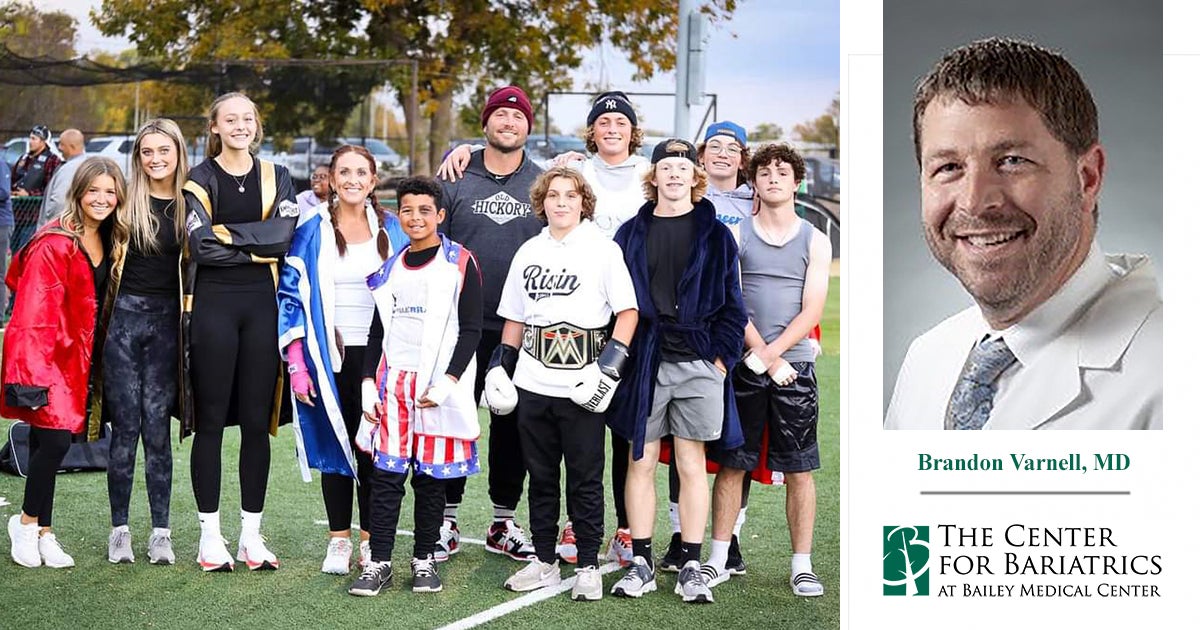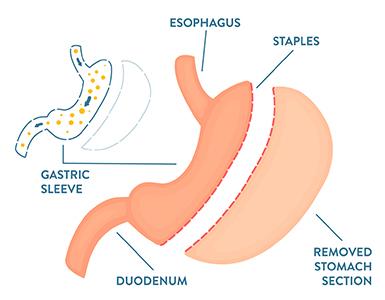
For 45-year-old Tera Mitchell, a kindergarten teacher at Westwood Elementary School in Stillwater, it had been a long time since she was comfortable in her own skin.
“In high school, I suffered from two emotional eating disorders: anorexia and bulimia,” Mitchell said. “During that time, I convinced myself that I was totally in control. My ‘dirty little secret’ was that I thought I knew exactly what I needed to do to keep the weight off, even if it was going to mess up my health. I was so mistaken.”
Mitchell tried all kinds of diets and pills to help her lose weight, but nothing worked.
“When I went off to college and discovered that lots of foods were delicious, I started gaining even more weight. I would diet and then gain it back. It was a vicious yo-yo cycle.”
Things didn’t get better when she gave birth to her three children. With so many responsibilities, it was hard to make her own health a priority.
“By then I had gained so much weight that I was heavy all the time.”
At her heaviest, Mitchell weighed 305 pounds on her 5’ 6” frame. Being on a teacher’s fixed income also complicated matters, especially with her family’s meal choices.
“All my kids are very involved and play sports,” Mitchell said. “When we are on the go, it’s hard to stop for healthier food when we need to eat, so we usually end up at fast food restaurants.”
Major complication
During this time, Mitchell was also being treated for a hiatal hernia. This type of hernia occurs when weakened muscle tissue allows your stomach to bulge up through your diagram. To make matters worse, Tera is one of 5% in the U.S. who also has Cameron lesions associated with her hiatal hernia. These little ulcers often burst open and cause slow, internal bleeding.
At first, her doctors thought the condition could be managed with diet and exercise. As the condition worsened, Mitchell had to receive blood transfusions every few years. The first transfusion involved nine units of blood. The second transfusion involved 10 units of blood, which is the total amount of blood normally found in each of our bodies.
“My doctors told me that they couldn’t control the hernia with medication, so I needed surgery to fix it,” Mitchell said. “I made an appointment and visited the surgeon to discuss the hernia surgery. Right away he looked at me and said that he would not do the surgery without me first losing a lot of weight. ‘You would be a good candidate for bariatric surgery,’ he suggested.”
Since Mitchell had not even considered bariatric surgery, and because she felt there is a stigma attached to the surgery, she stormed out of the surgeon’s office. “I don’t need this,” she thought. “I can do it on my own.”
But during the next 18 months, as she tried to lose weight and get other opinions, she kept coming back to the same conclusion.
“I finally realized that this hernia was either going to kill me or I was going to have to take steps to get healthy again,” Mitchell said.
“I was tired of being overweight. I was tired of not being able to enjoy life. I just wanted my life back and to be healthy, so I made an appointment at Bailey Bariatrics.”

Gastric sleeve surgery
When Mitchell went in to meet with Dr. Brandon Varnell, her heart was set on gastric sleeve surgery, since that was the kind of surgery her younger sister recently had. Mitchell went through additional testing to make sure it was the right choice for her.
Gastric sleeve surgery involves the removal of 80% of the patient’s stomach. It keeps the stomach at the same length but with a much slimmer width, like a shirt sleeve. Since the space inside the stomach is much smaller, a patient feels full after eating less food.
To prepare for the surgery, Mitchell went on a liquid diet, which helped her lose 30 pounds to get down to 270 before the surgery.

The surgery for both the hiatal hernia and the gastric sleeve went very well without complications. Dr. Varnell found nearly 90% of Mitchell’s stomach had come through the hiatal hernia, so he was also able to repair the hernia and anchor her new stomach below her new diaphragm.
Mitchell said she felt very prepared for what she would go through after the surgery. She had learned how to start on the liquid diet and then how to slowly introduce foods back into her diet to lessen the chance of complications. Still, that initial adjustment period was one of the hardest times she’d ever experienced.
“During those first few days, I felt so bad. I wasn’t hungry, but I told the surgeon that I was experiencing ‘buyer’s remorse.’ I knew it would be physically difficult, but I had no idea it would be so mentally difficult.”
A new way of living
Ten months post-surgery, Mitchell is two pounds away from her goal weight of 160 after losing 143 pounds. “I feel amazing! I am living again. I didn’t realize how much I had stopped living.”
Recently, Mitchell participated in a Halloween Wiffle ball tournament with her son’s high school baseball team (see above photo). “We dressed up like boxers and played with my sons and others. I hit the ball and ran the bases; it was so fun!”
There were other new changes to her life after the surgery. “I can now dance with my kindergarteners without being winded. I can sit on the floor with my students and cross my legs. I can shop for myself and not be limited by the kind of clothes I can buy or where I can buy them. I went from a size 22 slacks to a size eight!”
She and her family are looking forward to flying to Gulf Shores, Alabama for her son’s baseball trip, especially now that she can fit into an airplane seat. But Tera has two other big goals on her mind.
“When we get to the beach, I hope to parasail for the first time. The other big step will be putting on a bathing suit and being comfortable in my own skin – not worrying about how I look.”
Thanks to the work of Dr. Varnell and the staff at Bailey Bariatrics, Mitchell is extremely pleased with the results.
“It was the hardest thing that I've ever done in my life, but it was also the best thing I've ever done for myself.”
Learn more about Bailey Bariatrics’ free seminars on our website. You can also call 918-376-8410 to speak with a staff member about weight-loss surgery or about the metabolic management program.
